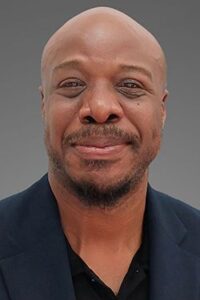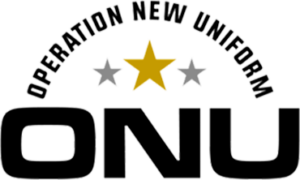 Johnny Farris had spent twenty years in the Air Force. The time had come to leave military service and venture into the civilian world, which he believed was brimming with jobs.
Johnny Farris had spent twenty years in the Air Force. The time had come to leave military service and venture into the civilian world, which he believed was brimming with jobs.
At least, that was the rumor. It wasn’t long before he realized he was lumped into a group of military men and women frustrated with the transition process and disillusioned by all the empty promises of jobs waiting for them.
“Nobody tells us how to find a career,” says Farris.
He found himself looking for a job related to logistics and supply since those were his concentrations while in the Air Force.
“For 20 years the Air Force told me I was damn good at supply and logistics,” Ferris says. “They gave me decorations and awards. I must be good at this, and this must be what I’m supposed to do. So, every job I looked for was in that field.”
But he was miserable. Not only was he doing the same type of jobs he held in the military, but the environments were less fulfilling than his military experience.
“I just kept looking for jobs, each time thinking I had ‘killed it’ in an interview, but never getting a callback.”
He tried the contractor gig and culinary school, but nothing stuck. Ultimately, he found himself right back in a warehouse.
There had to be something more he could do, something with meaning and impact.
It took a complete shifting of gears for Farris to get out of the rut he was in and find a purposeful career working as a care coordinator for the Crisis Center of Tampa Bay.
“What I learned from working at the Crisis Center was there are many veterans and families out there who are misguided, misinformed, and just lost.”
When you make the transition, no one tells you, “Hey, this world you’re about to enter, you’re the foreigner.” These people are in the business world, not the military world, and have no idea how we have been trained to operate.
As Outreach Coordinator for the non-profit One New Uniform, Farris has been able to reach many transitioning veterans and help them navigate the alien landscape of civilian careers.
Johnny Farris on the transition to civilian life
- Many veterans feel frustrated with the transition process and are not sure what the next best steps are.
- You don’t “quit” the military, but in the civilian world, if the job is not what you thought it would be, you can quit and find something else.
- Being around other veterans and part of a group can help you realize you are not alone in how you feel. Sometimes you must see it in somebody else, and then you’re like, oh, okay, I’m not crazy.
- Nobody tells you, “Hey man, you can’t talk to that person that way.” When you thought you were just telling them in a military-type way to get some work done. Now I’m sitting in HR.
- You have value. No matter what you spent your military career doing, you have earned soft skills that are valued in the business world.
- We don’t know what we don’t know. The military tells you your rank, where you’re going to live, how much money you will make, where you are going to work, and what to wear every day. After we leave the service, we get our role confused with our identity.
- For the first time ever in your adult life, you truly can be anything.
- You can ask questions at an interview. Ask them, “Can you tell me about the last person who had this position?” or “Is there room for growth?” The employer doesn’t have all the power. Empower yourself.
About Operation New Uniform
 The mission of Operation New Uniform (ONU) is to empower active duty service members, veterans, and military spouses to transition from military life to purposeful, stable careers in the civilian world successfully.
The mission of Operation New Uniform (ONU) is to empower active duty service members, veterans, and military spouses to transition from military life to purposeful, stable careers in the civilian world successfully.
ONU leverages the highly successful Sandler Training Program and enhances its award-winning results by providing transition-specific supportive services. Personalized Coaching, Mentors, Life Skills Workshops, Networking, and Resume Building.
The program is FREE with proof of active duty status, proof of separation date, or DD214.
Scan for more details about ONU Programs for Veterans, Military, and Spouses.